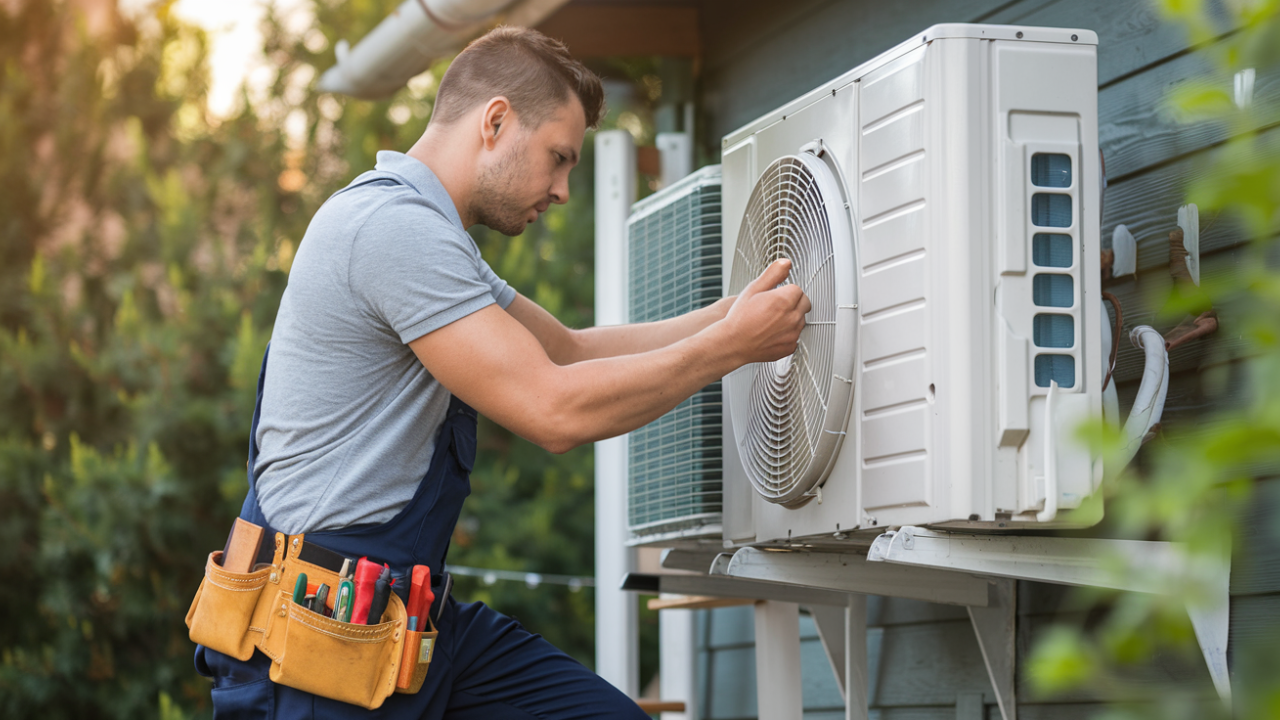Upgrading your HVAC (Heating, Ventilation, and Air Conditioning) system is a decision that can significantly enhance the comfort, efficiency, and longevity of your home or business. With rising energy costs, environmental concerns, and the need for improved indoor air quality, an HVAC replacement has become a practical and beneficial option for many property owners. This article delves into the various benefits of upgrading your HVAC system, focusing on how these upgrades lead to better energy efficiency and overall system performance.
1. Energy Savings
One of the primary reasons to consider an HVAC replacement is the potential for significant energy savings. Older HVAC systems, particularly those that are 10 years or older, tend to consume much more energy to provide the same level of comfort as newer models. This is due to outdated components, wear and tear, and lower SEER (Seasonal Energy Efficiency Ratio) ratings, which measure how efficiently a system cools or heats your space.
Modern HVAC systems are designed with energy efficiency in mind, featuring higher SEER ratings and improved components that minimize energy consumption. By upgrading your system, you can expect lower utility bills, which can quickly offset the cost of the replacement over time. For instance, a system with a SEER rating of 14-18 will use much less energy compared to an old system with a SEER rating of 8-10.
2. Improved Indoor Air Quality
An HVAC replacement can significantly improve the air quality in your home or office. Over time, older HVAC systems accumulate dust, mold, and debris in the ductwork and filters, which can negatively affect indoor air quality. These contaminants are often circulated through the system, leading to respiratory issues, allergies, and other health problems.
Newer HVAC units come equipped with advanced filtration systems that trap more airborne particles, improving the overall air quality. Additionally, modern systems have better humidity control capabilities, preventing excessive moisture buildup that could encourage mold growth. As a result, replacing your old HVAC system can contribute to a healthier and more comfortable living environment.
3. Enhanced Comfort and Consistency
As HVAC systems age, they tend to lose their ability to regulate temperature consistently throughout the home. Older units may have uneven heating or cooling, leaving certain rooms colder or hotter than others. Upgrading to a new system allows for more precise temperature control, ensuring a more consistent comfort level throughout the year.
Furthermore, modern HVAC systems often include zoning capabilities, which allow homeowners to control the temperature in different areas of the house. This means you can keep certain rooms cooler or warmer depending on your needs, further enhancing comfort and reducing energy waste by not heating or cooling unused spaces.
4. Increased Reliability and Reduced Repairs
Frequent repairs and system breakdowns can be a major inconvenience and cost for homeowners with aging HVAC systems. Older systems tend to experience more issues due to the wear and tear of components such as compressors, motors, and fans. With an HVAC replacement, you can reduce the likelihood of system failures, especially during extreme weather conditions when you need your heating or cooling most.
Newer HVAC systems are built with more reliable and durable components, meaning they are less prone to malfunctions. Additionally, with warranties often included, you can enjoy peace of mind knowing that if something does go wrong, the costs of repairs will be covered for the first few years.
5. Environmental Benefits
Upgrading your HVAC system not only saves you money but also helps protect the environment. Older systems often rely on refrigerants that are harmful to the ozone layer and contribute to global warming. In contrast, modern HVAC systems use environmentally friendly refrigerants that have a much lower impact on the environment.
By opting for an HVAC replacement, you are reducing your carbon footprint and contributing to sustainability efforts. In addition, the energy efficiency improvements of newer systems mean that your home will require less energy to maintain a comfortable temperature, further reducing your environmental impact.
6. Smart Technology Integration
Modern HVAC systems come equipped with smart technology features that allow for greater convenience and energy savings. Smart thermostats, for example, can learn your preferences and adjust the temperature automatically based on your schedule, which ensures that the system isn’t running unnecessarily when you’re not at home.
Additionally, many new HVAC systems offer remote control capabilities through smartphone apps. This enables you to monitor and adjust your system from anywhere, giving you greater control over your home’s temperature and energy usage. The integration of smart technology can further enhance the energy efficiency of your HVAC system, leading to even greater cost savings.
7. Increased Property Value
An HVAC replacement can also add value to your home or commercial property. Prospective buyers often place a premium on homes with modern, energy-efficient systems, as they recognize the long-term savings and comfort benefits. If you’re planning to sell your property in the future, upgrading your HVAC system can make your home more attractive to potential buyers, offering them an added benefit they won’t have to worry about for years to come.
8. Tax Credits and Incentives
Another advantage of upgrading your HVAC system is the availability of tax credits and incentives. Many local and federal programs offer rebates or tax deductions for homeowners who replace old HVAC systems with energy-efficient models. These programs are designed to encourage the adoption of energy-saving technologies and help offset the cost of an HVAC replacement.
Be sure to check with your HVAC contractor and local government to see if you qualify for any incentives that can reduce the initial investment.
Conclusion
Upgrading your HVAC system is an investment that pays off in numerous ways. From significant energy savings to enhanced comfort and improved indoor air quality, the benefits of HVAC replacement are clear. Additionally, the environmental advantages, increased reliability, and potential for higher property value make it a smart choice for both homeowners and business owners alike. Whether you’re looking to reduce your utility bills, improve the air you breathe, or increase your property’s market value, an HVAC replacement can provide you with the performance and efficiency you need for years to come.




